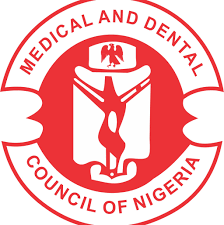Recently, a group of doctors, nurses and Interventional Radiology technicians for a medical mission with RAD-AID Nigeria were at the University College Hospital, UCH, Ibadan, Oyo State.
Their primary purpose was to help improve patient care at the tertiary health institution by imparting skills of a technique known as Interventional Radiology to Residents at the tertiary health institution.
With the development, the UCH is set to offer precisely services for the treatment of cancer and a series of ailments while offering specialist medical training in Interventional Radiology within the West Africa zone. In an encounter after the medical mission, a member of the RAD-AID team, Dr. Stephen Hunts, said interventional radiology in general touches every field in medicine.
“Interventional Radiology is a branch of medicine that utilises radiology imaging combined with minimally invasive procedures,” remarked Hunts who is an Associate Professor and trainer from the University of Pennsylvania, USA. “Interventional Radiology aims to reduce risks of open surgery and guarantee shorter hospital stays, greater comfort and quicker return to daily activities, Hunts remarked.
(1).jpg)
In Nigeria, trained Interventional Radiologists are hard to come by and the volunteer physicians from RAD-AID Nigeria, were on hand to teach the UCH Residents, important techniques in the procedure. The initiative, it was gathered, has the potential to eventually train hundreds of others including nurses. Hunt said: “You can think of the procedures as minimally invasive surgeries.
To give you an example, liver cancer is a big problem in Nigeria, HCC (Hepatocellular carcinoma) is a leading cause of cancer death in Nigeria and the way liver cancer is treated all over the world including the US is with Interventional Radiology. “Instead of opening up the body and cutting out cancer from the liver, for most patients the liver is too sick to be operated on, and what we do is to put in a catheter which is a tiny tube from the leg artery up, just like a heart catheterisation. “But instead of going into the heart, you make a turn at the artery that goes into the liver. And when it is there, you deposit little beads that contain chemotherapy and stop the blood flow to the tumour. It is very precise.
If there is one word for interventional medicine, it is precision.” In the views of the Director, RAD-AID Nigeria, Dr. Farouk Dako: “Interventional Radiology services are an important part of modern medicine. Minimally invasive interventions can be used throughout the body to diagnose and cure diseases and reduce patient pain and suffering. These services would place UCH at the top of tertiary institutions in the country and region. On the collaboration between the UCH with RAD-AID, Dako said the goal of RAD-AID is to collaborate with partner hospitals such as UCH to help achieve their goals of improving radiology services.
“The doctors, technologists, and nurses demonstrate the kind of enthusiasm that inspires us to want to do more. The humility that accompanies that talents is very welcoming.” On how the Pictures Archiving Communications system (PACS) system would benefit UCH clinicians and patients, he stated: “The RAD-AID friendship PACS is a hybrid cloud in collaboration with Ambra Health, Google cloud computing, and TribalCo. It consists of an in-house server and cloud-based back up that provides an easy to manage image archiving and communication system. Images can be made available to clinicians throughout the hospital and clinics, viewed and interpreted remotely by radiologists and shared with patients and any clinicians without the use of CDs.
“The image sharing capabilities of Ambra software is top of the line and can be transformative in the way radiology information is exchanged in Nigeria.” Dako said radiology is leading the way in health care informatics globally, ushering in a new age of advanced computing, big data management and artificial intelligence in health care that is poised to revolutionise medicine. Also speaking, the Head of Radiology Department/Pediatric Radiology Unit, at the Department of Radiology, College of Medicine, UCH, Prof. Omolola Mojisola Atalabi, said implementing interventional radiology services would aid the patient population at UCH.
“The implementation of Intervention Radiologist services in UCH, will not only help patients but also the clinicians to reach timely diagnosis through Intervention Radiologist assisted biopsies and in both adjuvant and curative treatments.” Atalabi said the Intervention Radiologist services will go way beyond helping patients in UCH alone but patients from the entire country and in the West African region.
“With this collaboration, RAD-AID will help to build the Intervention Radiologist services in UCH, with regular training visits with UCH as an Intervention Radiologist training hub, radiologists can train locally in their own practice setting where they can have hands-on training.
“Eventually, RAD-AID will have trained many radiologists who will, in turn, be able to train others, with the aim of producing a sizable group of locally trained interventional radiologists across the country and the West Africa sub-region. On the impact of the partnership on UCH doctors, techs and nurses, Atalabi said: “The first training session has motivated all the Intervention Radiologist team in the hospital and is happy that they can now do something extraordinary apart from the daily routine.
“The department of radiology has come alive again with a lot of excitement and we’re looking forward to an established and functional Intervention Radiologist service. “The result of this research may translate to providing quality patient care and improving the existing level of care,” Atalabi noted.
ABUJA: Training Schedule for Basic Life Support BLS, Pediatric Advanced Life Support (PALS), Advanced Cardiovascular Life Support ACLS, First Aid, CPR, AED
PORTHARCOURT: Training Schedule for Basic Life Support BLS, Pediatric Advanced Life Support (PALS), Advanced Cardiovascular Life Support ACLS, First Aid, CPR, AED
LAGOS: Training Schedule for Basic Life Support BLS, Pediatric Advanced Life Support (PALS), Advanced Cardiovascular Life Support ACLS, First Aid, CPR, AED




